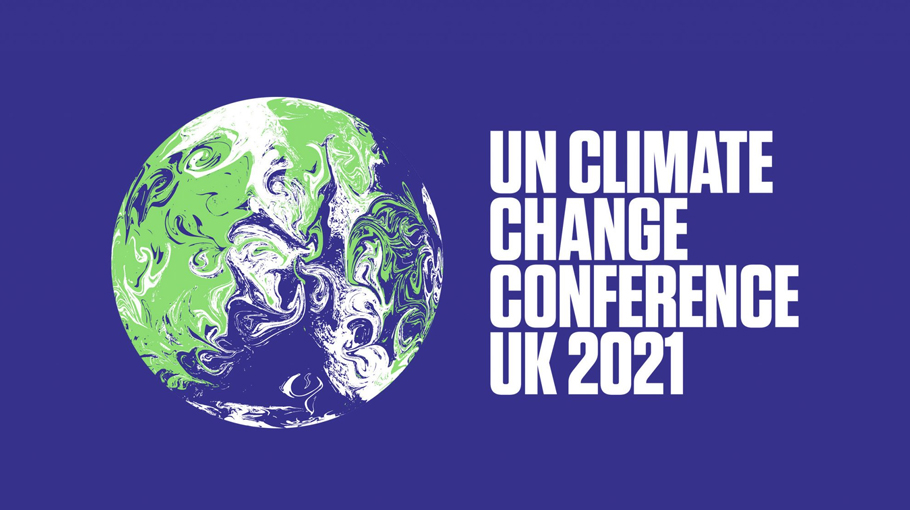MOMENT OF TRUTH
World eyes on COP26 decision

The world is looking eagerly for what kind of decision the world leaders will take in the COP26 climate change summit, which has started in the Scottish city of Glasgow on Sunday.
Delegates from around 200 countries are there to announce how they will cut emissions by 2030 and help save the planet.
Scientists have warned that the next big challenge for the world is the global warming and if it cannot be controlled, there will be a catastrophe.
With the world warming because of fossil fuel emission, scientists warn that urgent action is needed to avoid a climate disaster.
UK Prime Minister Boris Johnson said the summit will be the "world's moment of truth".
Speaking ahead of the two-week conference, Boris Johnson urged leaders to make the most of it: "The question everyone is asking is whether we seize this moment or let it slip away."
COP26 President Alok Sharma said agreement would be "tougher than what we achieved in Paris" five years ago, when almost all the world's nations agreed a treaty to "pursue efforts" to limit the global temperature rise to 1.5C.
"This is on leaders," he told BBC One's Andrew Marr Show. "They need to come forward and we need to collectively agree how we are going to meet this goal."
He said, "We expected more" of countries such as China, the world's largest carbon emitter, and called the summit a "real opportunity" for them to show leadership.
Media caption,COP26 President Alok Sharma says reaching agreements on 1.5C maximum global warming will be ''very very tough"
The United Nations gathering is one of the biggest summits the UK has ever hosted, and was delayed for a year because of the pandemic.
Sunday is largely a ceremonial opening day, with various speeches from people including Abdulla Shahid, the president of the UN General Assembly and Foreign Minister of the Maldives. The low-lying islands of the Maldives are threatened by climate change because of rising sea levels.
Countries from every region of the world will have representatives in Glasgow, ready to discuss their plans to cut emissions by 2030.
They all agreed in 2015 to make changes to keep global warming "well below" 2C above pre-industrial levels but since then, as extreme weather events have intensified, climate scientists have urged nations to aim for 1.5C to limit the risk of environmental disaster.
At the G20 in Rome, a draft communiqué said the leaders will pledge to take urgent steps to reach those goals. But already a key pledge to deliver $100bn (£73bn) a year in climate finance to developing countries has been pushed out to 2023.
Prince Charles addressed the G20 summit on Sunday, telling world leaders they have "an overwhelming responsibility to generations yet unborn" at COP26, and saying he detects "a change in attitudes and the build-up of positive momentum" to take urgent action.
The summit in Glasgow is where change could happen. You need to watch for the promises made by the world's biggest polluters, like the US and China, and whether poorer countries are getting the support they need.
Host of the summit, the UK has set a target for all of the nation's electricity to come from clean sources by 2035, and reduce its greenhouse-gas emissions to net zero by 2050. But some experts have said this is not achievable with the government's current policies.
New Zealand pledged on Sunday to reduce its net greenhouse gas emissions by 50% by 2030, toughening at the start of the United Nations COP26 climate conference its previous ambitions to limit global warming.
"While we are a small contributor to global emissions, as a country surrounded by oceans and an economy reliant on our land we are not immune to the impact of climate change, so it's critical we pull our weight," Prime Minister Jacinda Ardern said in a statement.
Ardern and Climate Change Minister James Shaw said in their joint statement that the previous target was not consistent with global efforts to limit global warming to 1.5 Celsius (2.7 Fahrenheit) above pre-industrial levels.
New Zealand's previous target was to bring emissions to 30% below 2005 levels by 2030.
The 2015 Paris Agreement committed signatories to keeping global warming to "well below" 2 degrees above pre-industrial levels, and preferably to 1.5 degrees, but carbon levels in the atmosphere have since grown.
The New Zealand government has introduced several policies to lower emissions during its second term including promising to make its public sector carbon-neutral by 2025 and buy only zero-emissions public transport buses from the middle of this decade.
Hundreds of people have gathered in Glasgow to protest the pressure on world leaders to tackle climate change. They have been protesting since Sunday morning, local time in Scotland. It is the largest of the demonstrations held ahead of the conference. Greta Thunberg, a Swedish environmentalist who has responded to the climate change movement, also joined the rally. Environmental activists from different countries are also participating in the protests. Protesters march with placards in the heart of Glasgow. The placards contains, "We want action, not just word of mouth" and "Stop using fossil fuels."




